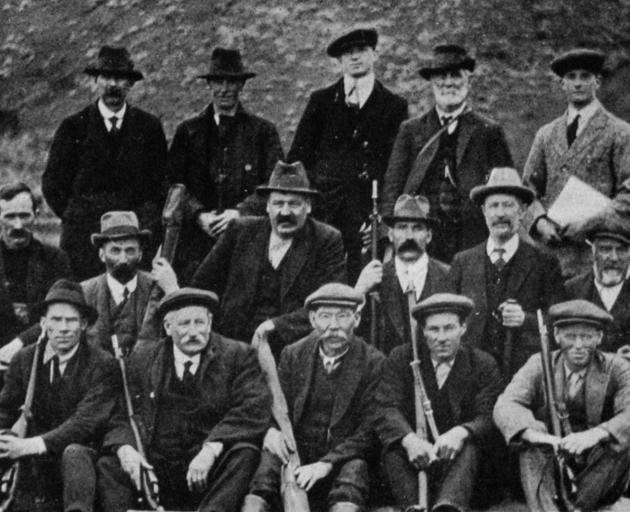
"Though anybody who can ride a motor bicycle can learn to fly a fairly safe type of aeroplane by daylight in good weather, only a few exceptional sort of young man is any good as an air fighter. It follows that to discover, train, and send up men of real genius is of quite primary importance in this war in the air. There must be in every country a definite limit to the supply of such men. The side that can go on producing this very rare product, the first-class air fighter, longest and most abundantly, is going to chase the other side out of the air. The side that can dominate the air can dominate the artillery, conflict and the whole ground of battle. It follows that to beat the other side in producing air fighters is a certain way to win the war. It is no good for either side to produce tens of thousands and hundreds of thousands of common aviators, if the other side has a surplus of these special fighters who can put down machines by the score. That would be only sending up pigeons to be shot at. On the other hand, if either side does possess that air superiority, then it can send its common, ordinary aviators by the hundred, properly protected by fighters, to raid, bomb, and destroy with impunity."
Newspapers for the troops
Relatives and friends of soldiers at the front sometimes wonder, in the absence of any acknowledgement, whether they receive the copies of the weekly New Zealand papers posted to them. Yesterday one of our reporters asked a Dunedin Post Office official if he had received any complaints regarding the non-arrival of Otago Witnesses posted to soldiers on active service. He replied that they had had such complaints, but, on the other hand, they had also received advice that Otago Witnesses had been regularly received by the soldiers to whom they had been sent.
It is now becoming a common practice throughout New Zealand for the senders of weekly papers to take off the covers before posting them, and to use other means to conceal the fact that they are weeklies.
The green cover of the Otago Witness and the distinguishing covers of the other newspapers at once disclose their identity, and the allegation is made that these New Zealand papers are eagerly sought in England and in France, and that those through whom they pass on the way to their rightful owners are not above "commandeering" them.
Inebriates not wanted
Much indignation was expressed by the individual members of the Green Island Borough Council at the monthly meeting of that body last evening at a suggestion made at the City Police Court during the latter part of last month to domicile two inebriates — prohibited persons — in the district of Green Island.
The authorities made the suggestion with the object of bringing about in some means reformation. Councillors, however, expressed themselves as much averse to this proposed action, taking the view that Green Island should not be made a "dumping ground" for undesirable characters. It was unanimously agreed, after considerable discussion, that the council strongly protest against any such action being taken. — ODT, 4.12.1917.
• COPIES OF PICTURE AVAILABLE FROM ODT FRONT OFFICE, LOWER STUART ST, OR WWW.OTAGOIMAGES.CO.NZ












